Meet the candidates challenging Donald Trump in the 2020 US presidential election
Donald Trump’s US presidential status is being challenged by a number of candidates running in the 2020 election. Here is what you should know.
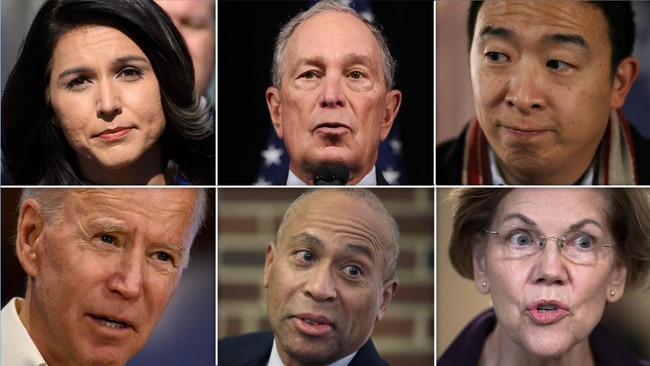
World
Don't miss out on the headlines from World. Followed categories will be added to My News.
It’s well known US President Donald Trump wears his heart on his twitter feed.
A study of his social media posts offers insight into what he’s watching on TV, where he stands on the issue of the day and what’s playing most on his mind.
A few weeks before Democrats cast their first votes for the contender they put up against him in November’s presidential election, Mr Trump was making his mind known about what he thinks of some of the candidates.
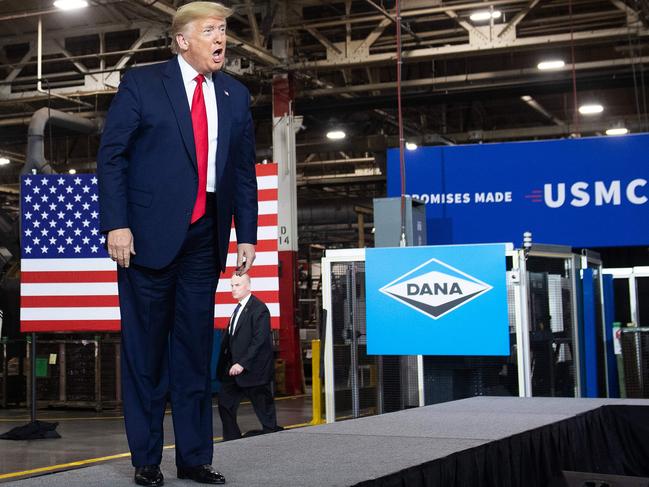
A series of polls in the early-voting states of Iowa and New Hampshire was putting Bernie Sanders ahead of former vice president, Joe Biden, who had been considered the Democratic frontrunner for the past several months.
“Wow! Crazy Bernie Sanders is surging in the polls, looking very good against his opponents in the Do Nothing Party,” he tweeted on January 12.
“So what does this all mean? Stay tuned!”
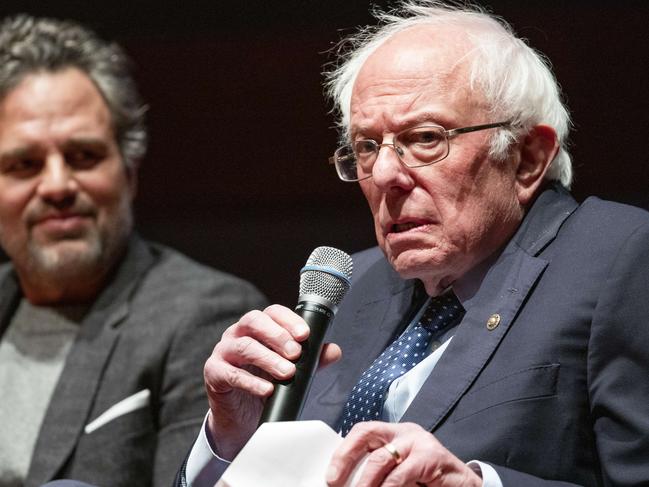
It followed a sharp escalation in verbal attacks on the Vermont senator, whose passionate supporters, record individual fundraising and endorsement from the liberal rock star quartet of young progressive members of Congress led by New Yorker Alexandria Ocasio-Cortez, had seen him steadily rise in Democrat ranks.
Mr Trump has tweeted about Mr Sanders more times since the beginning of 2020 than the entire preceding six months, and recently targeted him at campaign rallies at a rate of eight times that of Mr Biden, according to an analysis of his public comments by The Intercept.
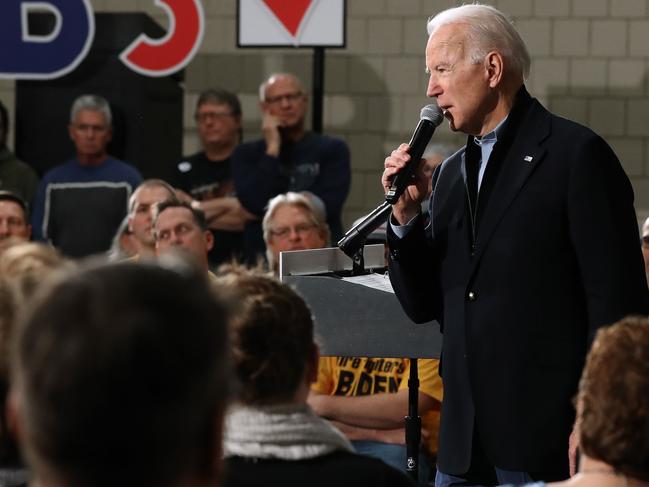
It’s not just Republicans sensing a genuine threat from Mr Sanders, 78, who identifies as a democratic socialist and is pushing a revolutionary platform that would erase college-student debt, immediately scrap private health cover, ban fracking, increase some taxes and reverse heightened immigration restrictions introduced by the Trump administration.
A wave of moderate Democrats have started describing Sanders as a “nightmare” candidate, with one Iowa group on Wednesday releasing an attack-ad reminding voters he had a heart attack in October.
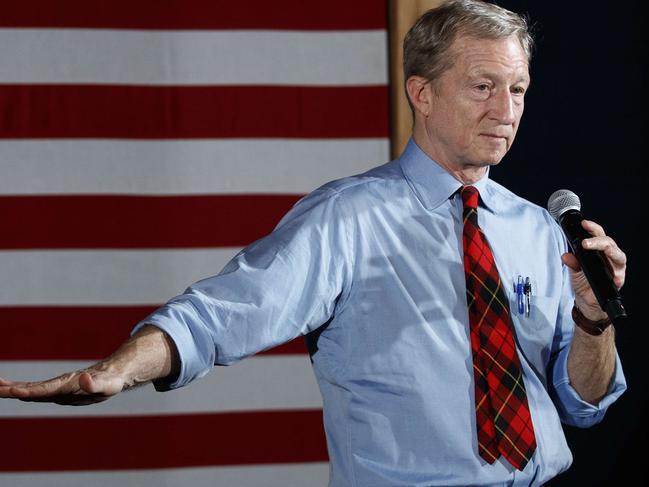
Influential center left think tank Third Way last week also distributed a memo to prominent Iowa Democrats warning that a vote for Sanders was what “Trump wants you to do.”
“Before you vote, we urge you to consider at least a few of the many things in Bernie Sanders’ long record in public life that make him the Trump team’s ‘ideal Democratic opponent’,” the memo reads.
It then listed a number of vulnerabilities the Trump 2020 campaign would exploit.
“They will call him a socialist,” it reads.
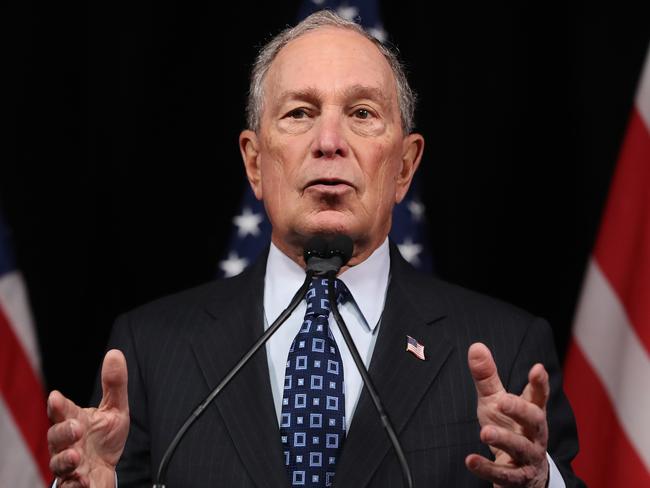
“They will say that he thinks the middle class wants to pay more in taxes … They will say he’s backed anti-American radicals.”
“Committed Democrats, like us, would vote for Sanders against Trump. But no Democrat remotely as far left as Sanders has ever won the presidency, and swing voters in crucial states would reject the radicalism of Sander’s background and ideas.”
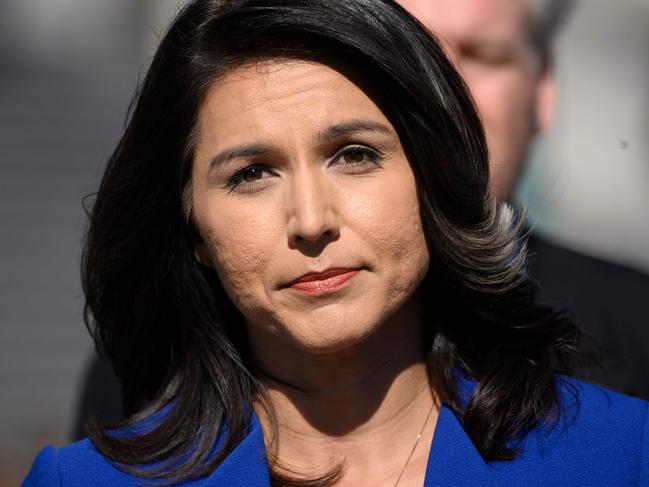
All of these tensions will play out in coming days in Iowa, the small midwestern state bang in the middle of America that has for the past 40 years wielded an out-size influence on setting up presidential candidates.
On Monday, it will be the centre of a media maelstrom, as its citizens come together to caucus and choose the candidates they want to lead their parties.
MORE NEWS
Australia’s best tough ute revealed
Baby given to wrong family in hospital bungle
Alanis adds Australian arena shows
The most attention is going to the Democratic race, because Mr Trump holding the Republican leadership is currently considered a foregone conclusion despite a couple of minor challengers.
The caucus is one of the more unusual processes of the primary calendar, undertaken with arcane rules.
Essentially “like minded” people come together in public and make their views known, before taking two rounds of votes by physically moving to sectioned areas of the room.
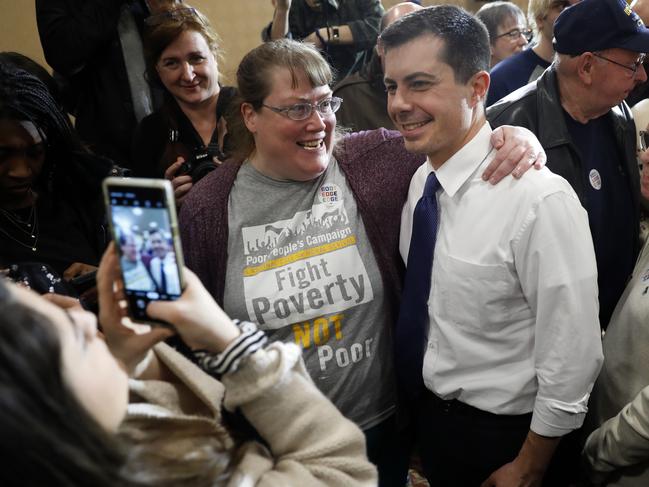
The level of commitment it requires to talk politics so openly and convincingly in front of your neighbours has created an unusually engaged populace.
The Iowa vote is followed a week later by primaries in New Hampshire, and later Nevada and South Carolina, before Super Tuesday in March kicks off a fortnight where more than half of America will have voted.
The winners of the early states gain traction, and funding, to keep them in competition and Iowa has picked the past five eventual Democratic presidential candidates.
Voters need to be registered the party in whose primary they are engaging in, and depending on which state it is, they need to do this in advance, or as in Iowa, can do it on polling day.
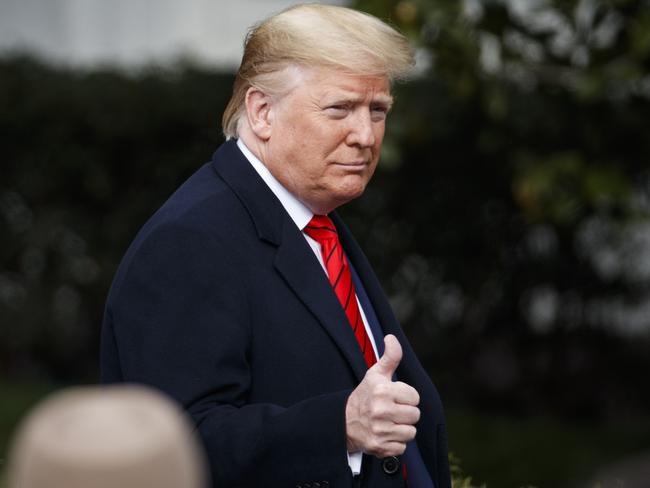
Iowa’s place at the forefront of the primaries is considered controversial, given it’s 85 per cent white, but under America’s labyrinthine election laws, this “won’t change anytime soon”, according to political science professor Bill Myer from Northeastern University.
“In lots of ways, it’s not fair. It gives a disproportionate voice to people in non-representative states,” Professor Myer tells News Corp Australia.
Prof Myer has written several books about America’s primary system, and identified a number of issues with the process.
“It takes a long time. If you want to run for president you really have to commit about two years to the process which seems a little ridiculous in some ways,” he says.
MORE NEWS
New York accused wife killer dead
How Brexit will make it easier for Aussies to work in UK
“It requires an awful lot of money the system works so that oftentimes candidates are become major contenders even though the probably didn’t know much about them until quite recently, and therefore doesn’t really know a heck of a lot about them.
“One thing one can say about the current process is it’s very participatory.
In 2016, 30 million democrats voted in the Democratic presidential primary and 31 million republicans voted in the Republican presidential primaries.
There are lots of Americans are very committed.
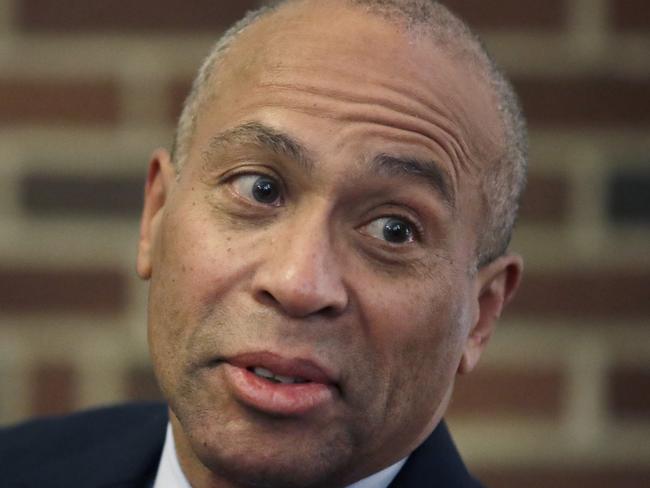
“They would not look favourably on anything that would decrease participation or would restrict their ability to choose the, the their party’s presidential nominee.”
And this close to voting, where Iowans have already spent the past year in campaign mode, there is a palpable sense of excitement that it will be over soon.
“The majority of Iowans are ready for this to be done and for them to all leave and go to
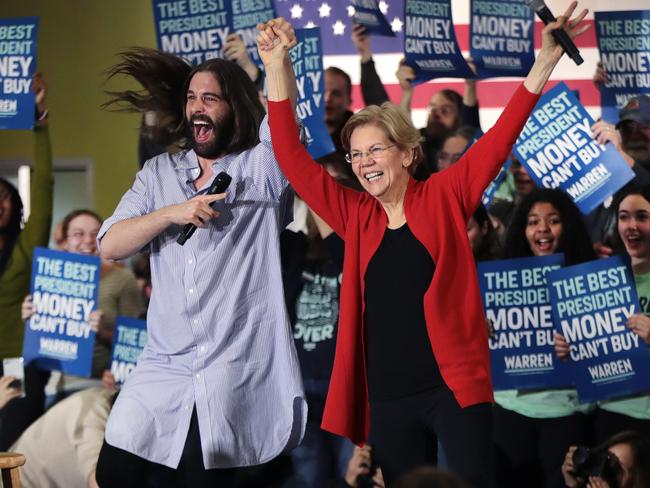
New Hampshire and forget about us until nearer November,” says prominent Des Moines radio commentator Simon Conway.
In a drafty student union hall at Iowa State University earlier this month, retired physicist Brian Seymour was waiting for his sixth candidate appearance in former mayor Pete Buttigieg.
“I like to check them all out before I vote,” the lifelong Democratic voter tells News Corp Australia, echoing the sentiments of several Des Moines residents we spoke to.
“I’m liking the looks of Biden at this stage, but I find Mayor Pete very interesting.”
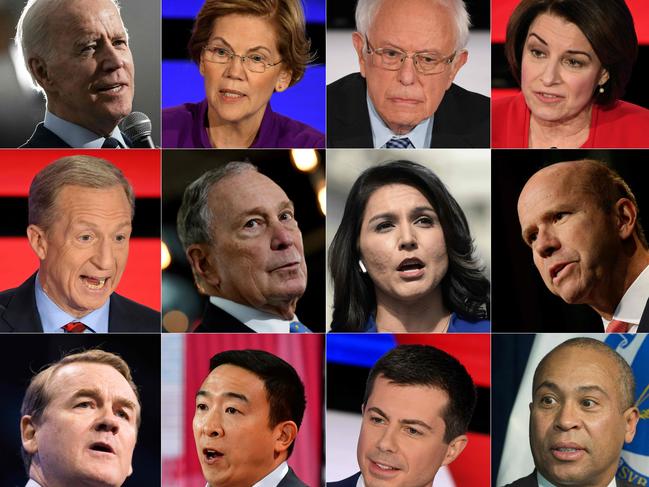
Like other voters that night, he didn’t consider the fact that the married Mr Buttigieg would be the first openly gay presidential nominee an issue, but there are concerns more conservative states would not hold the same sentiment if he pushes past the fourth spot he has reliably occupied in polling.
A navy veteran, Mr Buttigieg is the youngest candidate and threatening to split the moderate vote with Mr Biden, who is still holding in front nationally and second in early states despite having spent the final week before Iowa being targeted by Mr Trump’s lawyers at the impeachment trial.
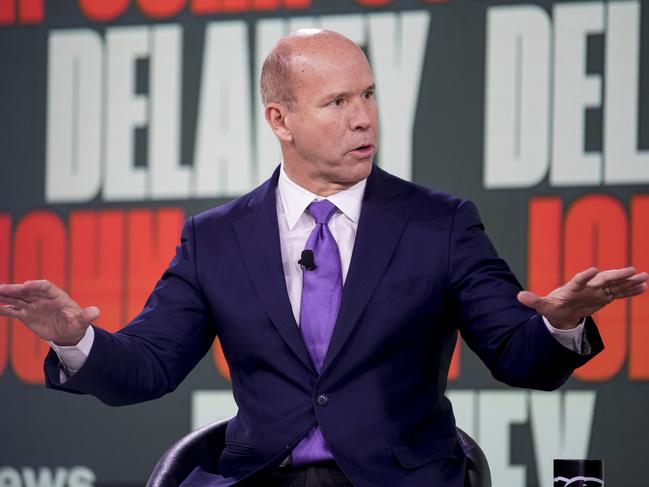
At third place, far left candidate Elizabeth Warren has plunged in polling, apparently at the expense of Mr Sanders’ rise, and is followed by Minnesota senator Amy Klobuchar, who has a strong record of winning against sitting Republicans.
Other candidates include tech titan Andrew Yang, whose unconventional manner, promise of a universal income and focus on the labor impacts of growing automation has garnered a loyal and growing supporter base.
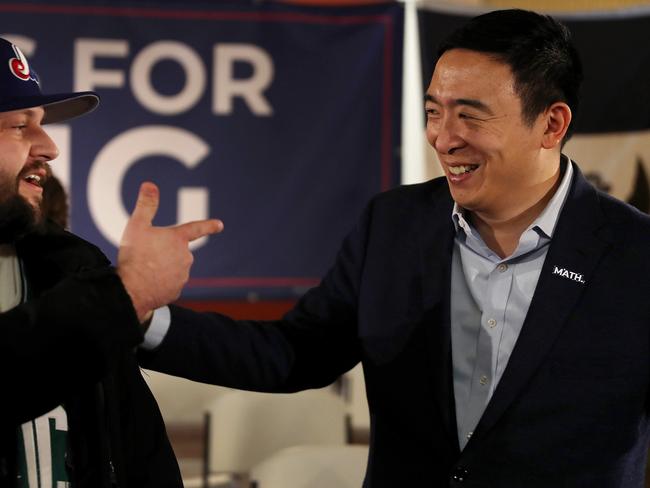
Mr Conway, a veteran conservative commentator, warned there was plenty of opportunity for upsets come Monday night.
“Typically they say there are three to four tickets out of Iowa, so you can certainly expect the Democrat field to thin further,” he said.
“Some (candidates) may wait for New Hampshire before they drop out.
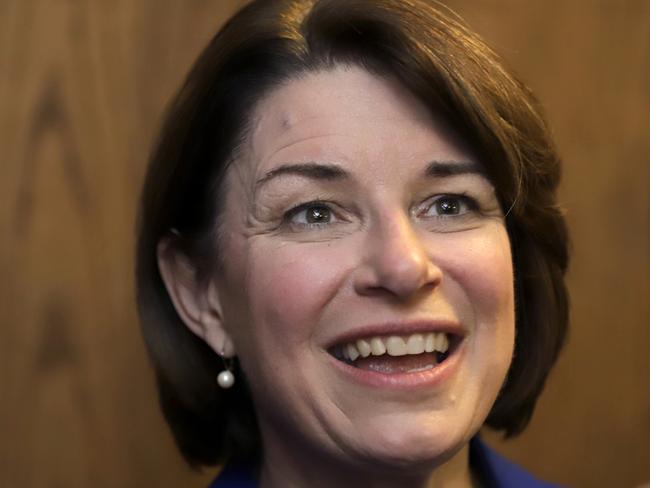
“I think the surprise package could well be Andrew Yang.
“That is purely my gut instinct, not based on anything other than we usually get a surprise, and I’m a big believer in usually the people who win are the people we want to go have a drink with.
“And I think a lot of people would really like to go have a drink with Andrew Yang.”
Originally published as Meet the candidates challenging Donald Trump in the 2020 US presidential election
